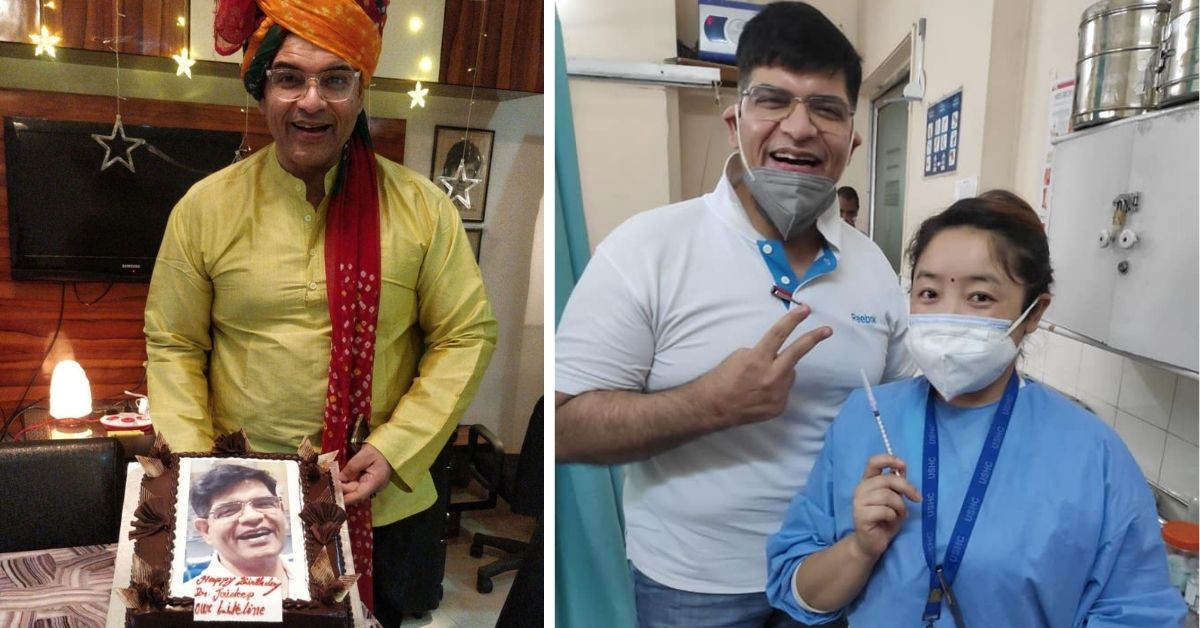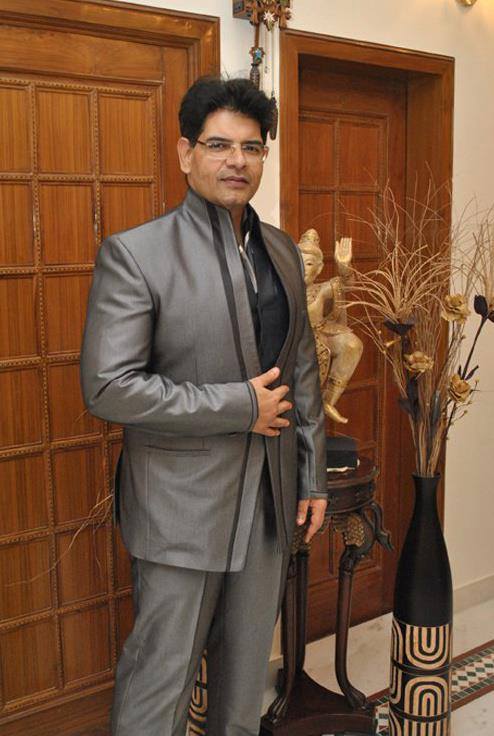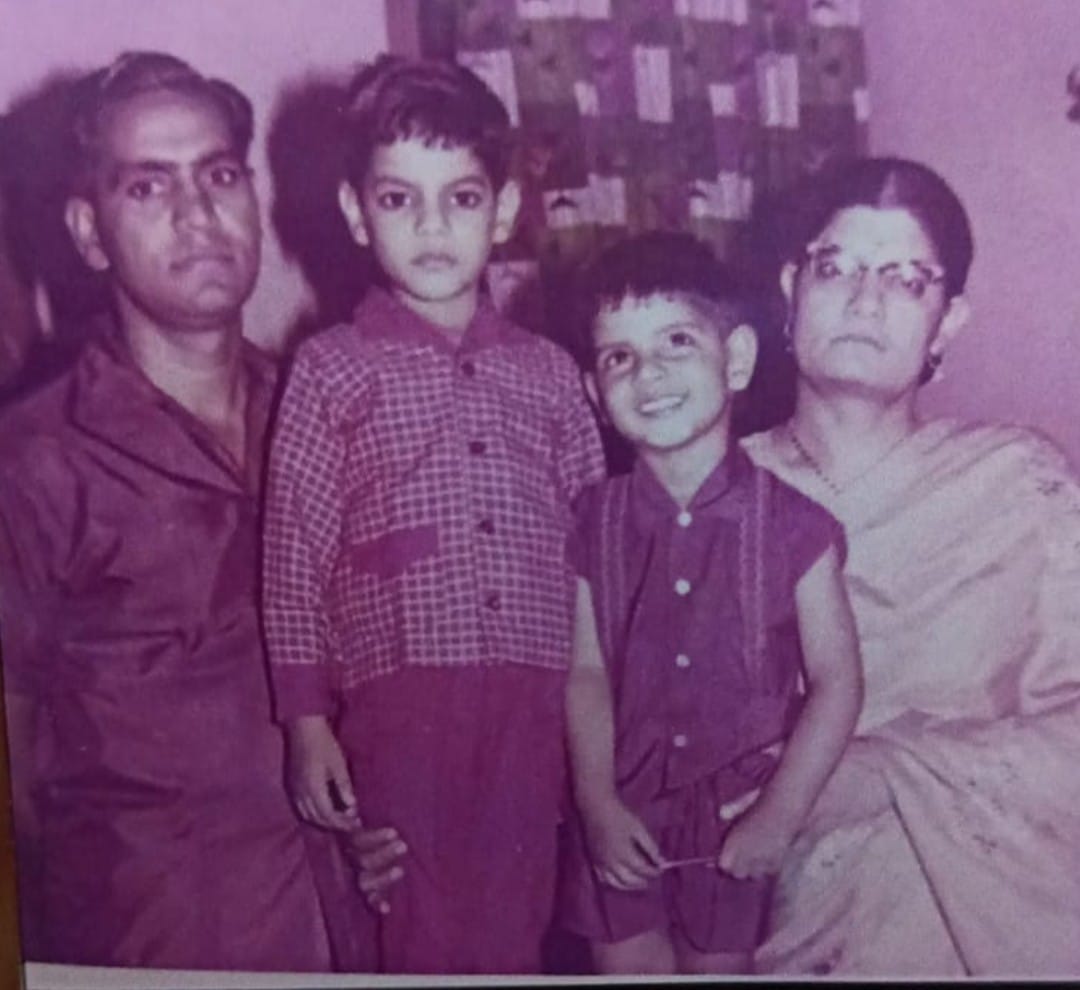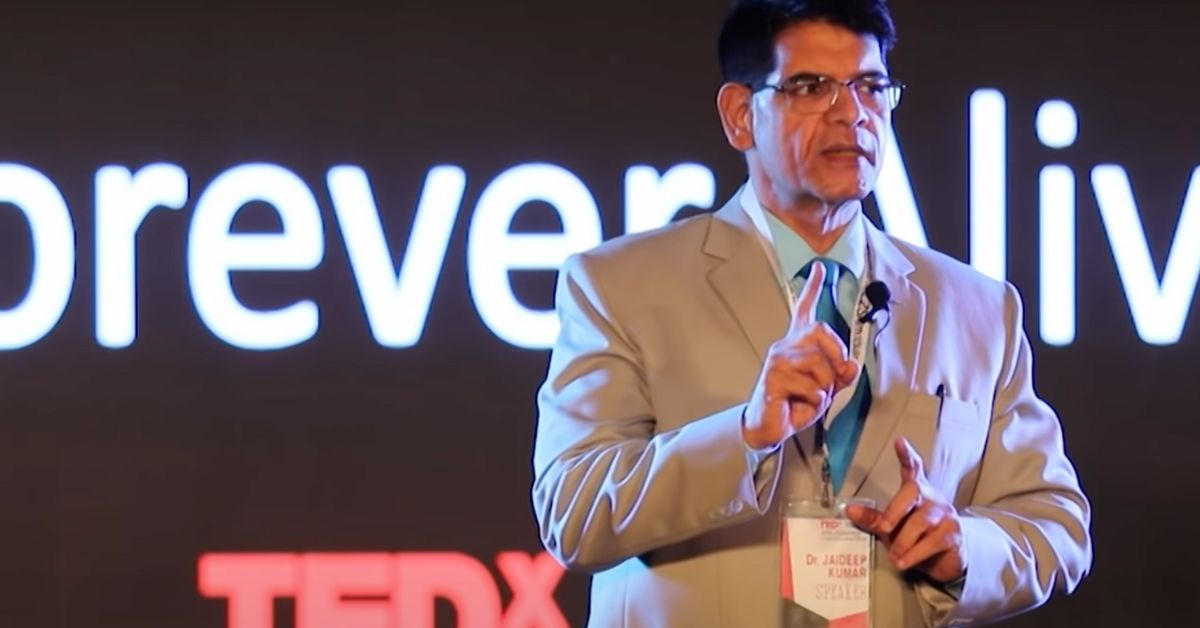I am India’s 2nd Longest Coma Survivor & Here’s Why I Want You to Donate Organs
India's second-longest coma survivor, Dr Jaideep Kumar Sharma's life has been a roller coaster ride. He shares his earnest appeal to all of us to donate our organs.

One cold winter morning in 1993 Dr Jaideep Kumar Sharma woke up in the Intensive Care Unit (ICU) of the All India Institute of Medical Sciences (AIIMS) in Delhi. He had been grievously injured in a road accident on 6 June 1992, which resulted in a broken skull, fractured jaw, crushed right shoulder, six missing ribs on his left side. He had tubes and pipes running through every part of his body with just some measly flesh left on his right leg.
“The last memory I had was of the summer. But by the time I woke up, six months later, it was winter. I was disoriented and lost,” says Dr Jaideep to The Better India. “Waking up that morning also gave me the notoriety of being the second-longest coma survivor in the country.”
To recover from the damage of the accident took Dr Jaideep many years. He adds that it was the collective wisdom and knowledge of hundreds of doctors at AIIMS that helped him back on his feet.
“I cannot put into words the pain I felt. I went through hell and I did not want that life. But, despite all that, I had 56 people come forward to donate blood for me. I underwent over 22 surgeries while under general anaesthesia over 10 years to be pieced back together. My body today consists of metal, plastic, flesh and bones from other donors and my own tissue from various parts of my body,” he says.
Despite the roller coaster life that Dr Jaideep has lived so far, he says in no uncertain terms that none of it was a hurdle. “I can also say that there will never be any ‘hurdle’ in the future,” he says. He describes life as a training programme and says that it was a tough training period for sure, but nothing that he couldn’t handle.
The ‘Miracle’ Man’s Early Years

Born in 1963 to a doctor mother and a father who was a research scholar, Dr Jaideep says that his parents were extremely busy and he cannot recollect a time when they would sit together as a family and even share a meal. “My parents believed in tough love. While as a child this was distressing, it made me who I am today,” he says.
He adds, “My parents came from two different worlds. While my mother’s family was rich enough to own elephants and hobnob with the British, my grandfather from my father’s side was able to afford a bicycle in the last phase of his career. So, you can imagine the difference. Yet, my mother and father fell in love and got married.”
“I have seen my parents work very hard to achieve all the success. My father was so passionate about his field of work that everything he did was focused on his goal. My mother’s private practice knew no bounds and she kept expanding her work,” recalls Dr Jaideep.
Having studied in a Hindi medium school for the initial few years, Dr Jaideep says, “There was a convent-run English medium school near my mother’s clinic only for girls. I would go to the residential part of the church every evening to be taught English by the nuns there.”
After those evening lessons, when Dr Jaideep was in Class 5, he was moved to an English medium school. He says, “I remember way back in 1975 I was asked to appear for an entrance exam in which I did not even understand what was being asked of me and so I failed it. With a lot of persuasion, my mother managed to get me in on the assurance that in six months I would be up to speed with the rest of the class.”
While his mother had committed to it, Dr Jaideep says that it wasn’t an easy task for a student from a Hindi medium to seamlessly fit into an English medium school. “That was a make or break year for me. All I did those few months was study and speak in English. I somehow managed to do reasonably well in my half-yearly examination and stayed there.”
Eventually, Dr Jaideep started thriving in a competitive environment and also started excelling academically. He went on to complete his MBBS and took up radiology.
‘Why Me?’

“For the initial few years after the accident and the several rounds of surgeries and therapies, I was a bitter man,” Dr Jaideep admits. He would constantly ask himself why he had to go through so many troubles.
Almost 13 years after he came out of the coma, in 2006, Dr Jaideep weighed 134 kg with diabetes, hypertension and multiple slip discs to manage. “This was not the life I had envisioned for myself,” he says.
In 2006, Dr Jaideep says that while he was soaring professionally having opened a chain of diagnostic centres across Gurgaon, something terrible happened one morning. “I woke up blind – I had experienced retinal detachment and couldn’t see a thing. I was a radiologist who could not see and could not walk thanks to all my weight and slipped discs. I was nothing more than a huge mass. I thought that was the end for me, and yet it wasn’t,” he says.
It was only in 2016 that Dr Jaideep came to accept everything that life had thrown at him.
“I knew I could not have been created just to undergo such misery. I was a trained radiologist and thankfully my work entailed me to sit on a chair and go about my work. So, I recovered enough to do my job. I was a success professionally,” he says. But his anger and resentment continued to bubble inside him.
An Inner Awakening

“Being blind also gave me the chance to spend a large amount of my time in introspection. It allowed me to understand what my purpose in life was and it was sometime in 2006 that I understood all of that,” he says. It was nothing short of a miracle when in 2015 an angiography performed for Dr Jaideep’s eyes revealed that it had healed and was now akin to a teenager’s vision.
“There was no drug or treatment that could have resulted in such healing. If that’s not miraculous what else is?” he asks. If anything, all of this has only taught Dr Jaideep to marvel at life and look at it with a sense of joie de verve. He intends to run his first marathon at the age of 60, which is one year away and says that he also has been taking dance and swimming lessons.
“I was saved back in 1993 because of the blood, bones and organs that people donated, without knowing who they were helping. They were merely being human. As humans, our biggest asset is our body and given that we all have a limited life span, it is important to put that body and every part of it to good use even after we are no more,” he says.
Despite his life being a roller coaster of a ride, Dr Jaideep continues to be filled with positivity. He says that with organ donation we can save the lives of up to ‘62 families’. “Your eyes go to three people, the liver to four and every part of the body can be used for someone else in need.”
In conclusion, he says, “Feel the pain of others and when you leave this earth, leave your body for others to enjoy. Your eyes, heart, bone, kidney, lungs, heart, feet – could very well save lives.”

(Edited by Yoshita Rao)
If you found our stories insightful, informative, or even just enjoyable, we invite you to consider making a voluntary payment to support the work we do at The Better India. Your contribution helps us continue producing quality content that educates, inspires, and drives positive change.
Choose one of the payment options below for your contribution-
By paying for the stories you value, you directly contribute to sustaining our efforts focused on making a difference in the world. Together, let's ensure that impactful stories continue to be told and shared, enriching lives and communities alike.
Thank you for your support. Here are some frequently asked questions you might find helpful to know why you are contributing?













